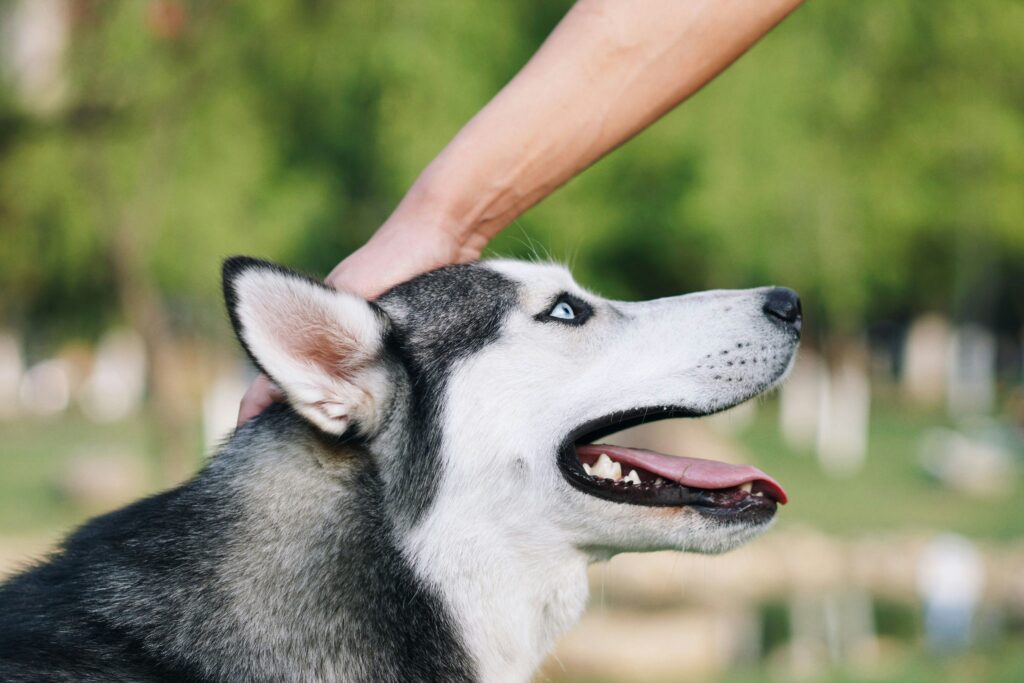The Siberian Husky is a stunning, intelligent, and energetic breed — but training one can be a unique challenge even for experienced dog owners. Known for their independent spirit and high energy levels, Huskies require patience, consistency, and the right techniques to become well-behaved companions.
If you’re wondering how to train a Husky, you’re in the right place. In this guide, we’ll walk you through 7 vet-approved tips and tricks to help you successfully train your Husky and strengthen the bond between you and your four-legged friend.

1. Start Training Early
The best time to start training your Husky is as early as possible — ideally when they are 8 to 12 weeks old. Puppies are naturally more receptive to learning new behaviors. Early training also helps prevent bad habits from forming, such as excessive howling, chewing, or stubbornness.
👉 Tip: Focus on basic commands like “sit,” “stay,” “come,” and leash manners in the first few months.
2. Focus on Positive Reinforcement
Huskies respond best to positive reinforcement methods. This means rewarding good behavior with treats, praise, or playtime rather than punishing mistakes. Harsh discipline can cause Huskies to become fearful or even more rebellious.
✔️ Vet Tip: Use high-value treats (like small bits of chicken or cheese) to make training sessions more rewarding and exciting for your Husky.
3. Be Consistent With Commands and Rules
Consistency is critical when training a Husky. Use the same commands and enforce the same rules every time. Mixed signals can confuse your dog and slow down their progress.
📢 Example: If you don’t want your Husky to jump on the couch, make sure everyone in the household enforces that rule without exceptions.
4. Keep Training Sessions Short and Fun
Huskies have short attention spans, especially when young. Long, repetitive sessions can cause boredom and frustration, leading to a stubborn response.
🕒 Ideal Training Session: 5–10 minutes, 2–3 times a day.
Incorporate games and movement-based activities (like fetch or hide-and-seek) to keep things exciting for your energetic Husky.
5. Socialize Your Husky Early and Often
Proper socialization is essential to help your Husky become a well-rounded adult. Introduce your puppy to different people, pets, sounds, and environments early on.
🐾 Vet Tip: Positive exposure to new experiences during the critical window (3 to 16 weeks of age) can prevent fear-based behaviors later in life.
6. Channel Their Energy Productively
Huskies are bred to run for miles and work in challenging conditions. Without enough physical and mental stimulation, they may become destructive.
🏃 Daily Exercise Needs:
- At least 1–2 hours of vigorous exercise
- Mental stimulation through puzzle toys or obedience drills
- Opportunities to safely run or pull a sled/cart (urban mushing!)
A tired Husky is a well-behaved Husky.
7. Be Patient and Adapt Your Methods
Huskies are known for their stubborn streak. Some may take longer to train than others, and that’s perfectly normal. Stay calm, patient, and flexible with your approach. If something isn’t working, reassess and try a new strategy.
🧠 Vet-Approved Trick: Break down complex behaviors into small, achievable steps, and reward progress along the way.
You CAN Train a Husky!
Training a Husky isn’t about dominance — it’s about communication, trust, and patience. By using these vet-approved tips, you’ll build a strong bond with your Husky and set them up for a lifetime of good behavior. Remember: early training, positive reinforcement, consistent rules, and proper exercise are the keys to success.
Ready to start your journey? Grab some treats, put on your best smile, and enjoy the adventure of training your intelligent (and sometimes mischievous) Husky!

Leave a Reply